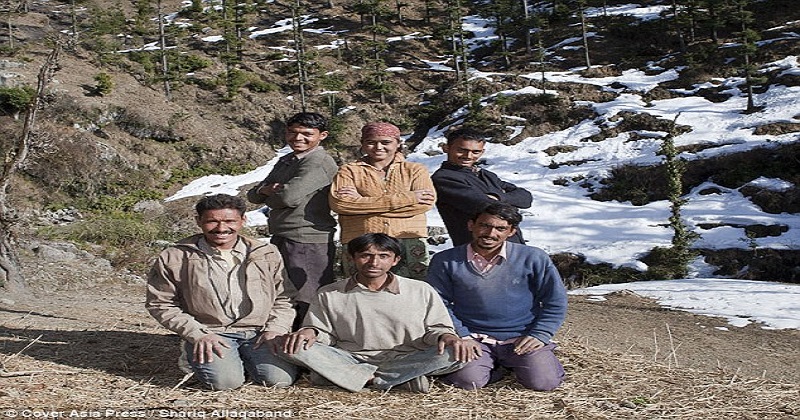
Here is the story of a young Indian woman who is married to five brothers. Rajo Verma, 21, lives in one room with the siblings and they sleep on blankets on the floor. She does not know which of her five related husbands is the father of her 18-month-old son since she sleeps with a different brother each night.
In a small village near Dehradun, Northern India, it is tradition for women to marry their first husband’s brothers as well. According to her, at first, the experience felt awkward. ‘But I don’t favor one over the other,’ she said. Rajo and her first husband Guddu were married in an arranged Hindu wedding four years ago. Since then she has married Baiju, 32, Sant Ram, 28, Gopal, 26, and Dinesh, 19 – her latest husband who married her as soon as he turned 18. It is true that we all have sex with her, but I am not jealous. Our family is one big happy one’, said Guddu – the first and only official spouse.

A minority of Indians observe the ancient Hindu tradition of polyandry, once a widespread practice in India. Women who live in male-dominated areas typically have more than one husband. It is thought that fraternal polyandry originated from the popular Sanskrit epic Mahabharatha, in which Draupadi, daughter of the King of Pancha, marries five of her brothers. The practice is also believed to be a way to keep farmland in the family. It is found mostly north of the Himalayas and in Tibet, a mountainous country.

The progress of modernity has largely eliminated this ancient practice in most areas, but the scarcity of women in countries like China and India has kept it alive as a solution to young men’s difficulties in finding a wife. She added that her own mother was married to three brothers, so she knew she was expected to accept her husbands. They sleep together in turns, but they do not have beds, just ‘lots of blankets on the floor’. ‘I get a lot more attention and love than most wives,’ she said.

ANCIENT TRADITION OF POLYANDRY
Historically, polyandry is thought to have originated from the Mahabharata, an ancient Indian epic. In the text, which is one of the cornerstones of Indian culture, Draupadi, daughter of the King of Pancha, is married to five brothers. In its most common form – when women marry more than one man from the same family – polyandrous relationships are not legal.
Read more: ‘We should liberate Kashmir from enemies of Islam’: Al-Qaeda congratulates Taliban
Men-dominated villages still practice primitive rituals and customs in this tradition. Brothers who refuse to join the union are often treated as outcasts. Women in polyandrous families often do not know which of their husbands fathered which child. DNA testing has recently been used to resolve inheritance disputes.

Post Your Comments